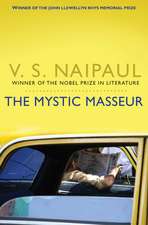Sacred Hearts: Random House Reader's Circle
Autor Sarah Dunanten Limba Engleză Paperback – 31 mar 2010
| Toate formatele și edițiile | Preț | Express |
|---|---|---|
| Paperback (2) | 50.31 lei 3-5 săpt. | +27.40 lei 10-14 zile |
| Little Brown Book Group – 3 ian 2013 | 50.31 lei 3-5 săpt. | +27.40 lei 10-14 zile |
| Random House Trade – 31 mar 2010 | 120.26 lei 6-8 săpt. |
Din seria Random House Reader's Circle
-
 Preț: 107.68 lei
Preț: 107.68 lei -
 Preț: 100.16 lei
Preț: 100.16 lei -
 Preț: 74.62 lei
Preț: 74.62 lei -
 Preț: 111.29 lei
Preț: 111.29 lei -
 Preț: 108.72 lei
Preț: 108.72 lei -
 Preț: 117.39 lei
Preț: 117.39 lei -
 Preț: 139.68 lei
Preț: 139.68 lei -
 Preț: 103.03 lei
Preț: 103.03 lei -
 Preț: 65.10 lei
Preț: 65.10 lei -
 Preț: 57.77 lei
Preț: 57.77 lei -
 Preț: 95.48 lei
Preț: 95.48 lei -
 Preț: 98.78 lei
Preț: 98.78 lei -
 Preț: 106.04 lei
Preț: 106.04 lei -
 Preț: 128.86 lei
Preț: 128.86 lei -
 Preț: 81.80 lei
Preț: 81.80 lei -
 Preț: 128.64 lei
Preț: 128.64 lei -
 Preț: 131.94 lei
Preț: 131.94 lei -
 Preț: 120.71 lei
Preț: 120.71 lei -
 Preț: 94.23 lei
Preț: 94.23 lei -
 Preț: 125.84 lei
Preț: 125.84 lei -
 Preț: 106.42 lei
Preț: 106.42 lei -
 Preț: 100.83 lei
Preț: 100.83 lei -
 Preț: 102.86 lei
Preț: 102.86 lei -
 Preț: 128.33 lei
Preț: 128.33 lei -
 Preț: 103.44 lei
Preț: 103.44 lei -
 Preț: 115.49 lei
Preț: 115.49 lei -
 Preț: 122.14 lei
Preț: 122.14 lei -
 Preț: 105.22 lei
Preț: 105.22 lei -
 Preț: 115.08 lei
Preț: 115.08 lei -
 Preț: 119.55 lei
Preț: 119.55 lei -
 Preț: 108.90 lei
Preț: 108.90 lei -
 Preț: 115.34 lei
Preț: 115.34 lei -
 Preț: 116.76 lei
Preț: 116.76 lei -
 Preț: 124.72 lei
Preț: 124.72 lei -
 Preț: 159.17 lei
Preț: 159.17 lei -
 Preț: 91.55 lei
Preț: 91.55 lei -
 Preț: 104.59 lei
Preț: 104.59 lei -
 Preț: 105.41 lei
Preț: 105.41 lei -
 Preț: 104.66 lei
Preț: 104.66 lei -
 Preț: 117.80 lei
Preț: 117.80 lei -
 Preț: 90.64 lei
Preț: 90.64 lei -
 Preț: 104.81 lei
Preț: 104.81 lei -
 Preț: 108.50 lei
Preț: 108.50 lei -
 Preț: 98.21 lei
Preț: 98.21 lei -
 Preț: 111.76 lei
Preț: 111.76 lei -
 Preț: 135.15 lei
Preț: 135.15 lei -
 Preț: 122.45 lei
Preț: 122.45 lei -
 Preț: 139.15 lei
Preț: 139.15 lei -
 Preț: 98.12 lei
Preț: 98.12 lei
Preț: 120.26 lei
Nou
Puncte Express: 180
Preț estimativ în valută:
23.01€ • 23.94$ • 18.100£
23.01€ • 23.94$ • 18.100£
Carte tipărită la comandă
Livrare economică 12-26 aprilie
Preluare comenzi: 021 569.72.76
Specificații
ISBN-13: 9780812974058
ISBN-10: 0812974050
Pagini: 448
Dimensiuni: 141 x 201 x 25 mm
Greutate: 0.31 kg
Editura: Random House Trade
Seria Random House Reader's Circle
ISBN-10: 0812974050
Pagini: 448
Dimensiuni: 141 x 201 x 25 mm
Greutate: 0.31 kg
Editura: Random House Trade
Seria Random House Reader's Circle
Notă biografică
Sarah Dunant is the author of the international bestsellers The Birth of Venus and In the Company of the Courtesan, which have received major acclaim on both sides of the Atlantic. Her earlier novels include three Hannah Wolfe crime thrillers, as well as Snowstorms in a Hot Climate, Transgressions, and Mapping the Edge, all three of which are available as Random House Trade Paperbacks. She has two daughters and lives in London and Florence.
From the Hardcover edition.
From the Hardcover edition.
Extras
Chapter One
Before the screaming starts, the night silence of the convent is already alive with its own particular sounds.
In a downstairs cell, Suora Ysbeta’s lapdog, swaddled like a baby in satin cloth, is hunting in its dreams, muzzled grunts and growls marking the pleasure of each rabbit cornered. Ysbeta herself is also busy with the chase, her silver tray doubling as a mirror, her right hand poised as she closes a pair of tweezers over a stubborn white hair on her chin. She pulls sharply, the sting and the satisfaction of the release in the same short aah of breath.
Across the courtyard two young women, plump and soft-cheeked as children, lie together on a single pallet, entwined like kindling twigs, their faces so close they seem almost to be exchanging breaths, the one inhaling as the other lets go: in, out, in, out. There is a slight sweetness to the air—angelica, perhaps, or sweet mint—as if they have both eaten the same sugared cake or drunk from the same spiced wine cup. Whatever they have imbibed, it has left them both sleeping soundly, their contentment a low hum of pleasure in the room.
Suora Benedicta, meanwhile, can barely contain herself, there is so much music inside her head. Tonight it is a setting of the Gradual for the Feast of the Epiphany, the different voices like colored tapestry threads weaving in and over one another. Sometimes they move so fast she can barely chalk them down, this stream of white notes on her slate blackboard. There are nights when she doesn’t seem to sleep at all, or when the voices are so insistent she is sure she must be singing out loud with them. Still, no one admonishes her the next day, or wakes her if she slips into a sudden nap in the refectory. Her compositions bring honor and benefactors to the convent, and so her eccentricities are overlooked.
In contrast, young Suora Perseveranza is in thrall to the music of suffering. A single tallow candle spits shadows across her cell. Her shift is so thin she can feel the winter damp as she leans back against the stone wall. She pulls the cloth up over her calves and thighs, then more carefully across her stomach, letting out a series of fluttering moans as the material sticks and catches on the open wounds underneath. She stops, breathing fast once or twice to still herself, then tugs harder where she meets resistance, until the half-formed skin tears and lifts off with the cloth. The candlelight reveals a leather belt nipped around her waist, a series of short nails on the inside, a few so deeply embedded in the flesh beneath that all that can be seen are the crusted swollen wounds where leather and skin have fused together. Slowly, deliberately, she presses on one of the studs. Her hand jumps back involuntarily, a cry bursting out of her, but there is an exhilaration to the sound, a challenge to herself as her fingers go back again.
She keeps her gaze fixed on the wall ahead, where the guttering light picks out a carved wooden crucifix: Christ, young, alive, His muscles running through the grain as His body strains forward against the nails, His face etched with sorrow. She stares at Him, her own body trembling, tears wet on her cheeks, her eyes bright. Wood, iron, leather, flesh. Her world is contained in this moment. She is within His suffering; He is within hers. She is not alone. Pain has become pleasure. She presses the stud again and her breath comes out in a long satisfying growl, almost an animal sound, consumed and consuming.
In the next-door cell, Suora Umiliana’s fingers pause briefly over her chattering rosary beads. The sound of the young sister’s devotion is like the taste of honey in her mouth. When she was younger she too had sought God through open wounds, but now as novice mistress it is her duty to put the spiritual well-being of others before her own. She bows her head and returns to her beads.
...
in her cell above the infirmary, Suora Zuana, Santa Caterina’s dispensary mistress, is busy with her own kind of prayer. She sits bent over Brunfels’s great book of herbs, her forehead creased in concentration. Next to her is a recently finished sketch of a geranium plant, the leaves of which have proved effective at stanching cuts and flesh wounds—one of the younger nuns has started passing clots of blood, and she is searching for a compound to stop a wound she cannot see.
Perseveranza’s moans echo along the upper cloister corridor. Last summer, when the heat brought the beginnings of infection to the wounds and those who sat next to the young nun in chapel complained about the smell, the abbess had sent her to the dispensary for treatment. Zuana had washed and dressed the angry lesions as best she could and given her ointment to reduce the swelling. There is nothing more she can do. While it is possible that Perseveranza might eventually poison herself with some deeper infection, she is healthy enough otherwise, and from what Zuana knows of the way the body works she doesn’t think this will happen. The world is full of stories of men and women who live with such mutilations for years, and while Perseveranza might talk fondly enough of death, it is clear that she gains too much joy from her suffering to want to end it prematurely.
Zuana herself doesn’t share this passion for self-mortification. Before she came to the convent she had lived for many years as the only child of a professor of medicine. His very reason for being alive had been to explore the power of nature to heal the body, and she cannot remember a moment in her life when she didn’t share his fervor. She would have made a fine doctor or teacher like him, had such a thing been possible. As it is, she was fortunate that after his death his name and his estate were good enough to buy her a cell in the convent of Santa Caterina, where so many noblewomen of Ferrara find space to pursue their own ways to live inside God’s protection.
Still, any convent, however well adjusted, trembles a little when it takes in one who really does not want to be there.
...
zuana looks up from her table. The sobbing coming from the recently arrived novice’s cell is now too loud to be ignored. What started as ordinary tears has grown into angry howls. As dispensary mistress it is Zuana’s job, should things become difficult, to settle any newcomer by means of a sleeping potion. She turns over the hourglass. The draft is already mixed and ready in the dispensary. The only question is how long she should wait.
It is a delicate business, judging the depth of a novice’s distress. A certain level of upset is only natural: once the feasting is over and the family has left, the great doors bolted behind them, even the most devout of young women can suffer a rush of panic when faced with the solitude and silence of the closed cell.
Those with relatives inside are the easiest to settle. Most of them have cut their teeth on convent cakes and biscuits, so pampered and fussed over through years of visiting that the cloister is already a second home. If—as it might—the day itself unleashes a flurry of exhausted tears, there is always an aunt, sister, or cousin on hand to cajole or comfort them.
For others, who might have harbored dreams of a more flesh-and-blood bridegroom or left a favorite brother or doting mother, the tears are as much a mourning for the past as fear of the future. The sisters in charge treat them gently as they clamber out of dresses and petticoats, shivering from nerves rather than cold, their naked arms raised high in the air in readiness for the shift. But all the care in the world cannot disguise the loss of freedom, and though some might later substitute silk for serge (such fashionable transgressions are ignored rather than allowed), that first night girls with soft skin and no proclivity for penance can be driven mad by the itch and the scratch. These tears have an edge of self-pity to them, and it is better to cry them now, for they can become a slow poison if left to fester.
Eventually the storm will blow itself out and the convent return to sleep. The watch sister will patrol the corridors, keeping tally of the time until Matins, some two hours after midnight, at which point she will pass through the great cloister in the dark, knocking on each door in turn but missing that of the latest arrival. It is a custom in Santa Caterina to allow the newcomer to spend her first night undisturbed, so the next day will find her refreshed and better prepared to enter her new life.
Tonight, however, no one will do much sleeping.
In the bottom of the hourglass the hill of sand is almost complete, and the wailing has grown so violent that Zuana feels it in her stomach as well as her head—as if a wayward troop of devils has forced its way inside the girl’s cell and is even now winding her intestines on a spit. In their dormitory, the young boarders will be waking in terror. The hours between Compline and Matins mark the longest sleep of the night, and any disturbance now will make the convent bleary-eyed and foul-tempered tomorrow. In between the screams, Zuana registers a cracked voice rising up in tuneless song from the infirmary. Night fevers conjure up all manner of visions among the ill, not all of them holy, and it will not help to have the crazed and the sickly joining in the chorus.
Zuana leaves her cell swiftly, her feet knowing the way better than her eyes. As she moves down the stairs into the main cloister and enters the great courtyard, she is held for a second, as she often is, by its sheer beauty. From the moment she first stood here, sixteen years ago, the walls around threatening to crush her, it has offered a space for peace and dreams. By day the air is so still it seems as if time itself has stopped, while in the dark you can almost hear the rush of angels’ wings behind you. Not tonight, though. Tonight the stone well in the middle looms up like a gray ship in a sea of black, the sound of the girl’s sobbing a wild wind echoing around it. It reminds her of the story her father used to tell of the time he sailed to the East Indies to collect plant specimens and how they found a merchant boat abandoned in steamy waters, the only sign of life the screeching of a starving parrot left on board. “Just imagine, carissima. If only we could have understood that bird’s language, what secrets might it have revealed?”
Unlike him, Zuana has never seen the ocean, and the only siren voices she knows are those of soaring sopranos in chapel or wailing women in the night. Or the yelping of noisy dogs—like the one now yapping in Suora Ysbeta’s cell, a small matted ball of hair and bad smells with teeth sharp enough to bite through its night muzzle and join in the drama. Yes, it is time for the sleeping draft.
The air in the infirmary is thick with tallow-candle smoke and the rosemary fumigant that she keeps burning constantly to counteract the stench of illness. She passes the young choir sister crippled by her bleeding insides, her body curled in over itself, eyes tight shut in a way that speaks of prayer rather than sleep. In the remaining beds the other sisters are as old as they are ill, their lungs filled with winter damp, so they bubble and rasp as they breathe. Most of them are deaf to anything but the voices of angels, though not above competing as to whose choir is the sweetest.
“Oh, sweet Jesus! It is coming. Save us all.”
While Suora Clementia’s ears are still sharp enough to make out the pad of a cat’s paw, her mind is so clouded that she might read it as the footfall of the devil’s messenger or the first sign of the Second Coming.
“Hush.”
“Hear the screaming! Hear the screaming!” The old woman is bolt upright in the last bed, her arms flapping as if to beat off some invisible attack. “The graves are opening. We will all be consumed.”
Zuana catches her hands and pulls them down onto the sheets, holding them still while she waits for the nun to register her presence. In the Great Silence that runs from Compline until daybreak, the ill and the mad will be forgiven for breaking the rule but others risk grave penance for any squandered speech.
“Shhh.”
Across the courtyard another howl rises up, followed by a crash and a splintering of wood. Zuana pushes the old nun gently back down toward the bed, settling her as best she can. The tang of fresh urine lifts off the sheet. It can wait until morning. The servant sisters will be gentler if they have had some sleep.
Taking the night-light, she moves swiftly into the dispensary, which lies behind a door at the far end of the infirmary. On the wall in front of her, pots, vials, and bottles dance in rhythm to the flickering flame. She knows each and every one of them; this room is her home, more familiar to her even than her cell. She takes a glass vial from a drawer and, after a second’s hesitation, reaches for a bottle from the second shelf, uncorks it, and adds some further drops of syrup. Any novice who breaks furniture as well as silence will need a strong soporific.
From the Hardcover edition.
Before the screaming starts, the night silence of the convent is already alive with its own particular sounds.
In a downstairs cell, Suora Ysbeta’s lapdog, swaddled like a baby in satin cloth, is hunting in its dreams, muzzled grunts and growls marking the pleasure of each rabbit cornered. Ysbeta herself is also busy with the chase, her silver tray doubling as a mirror, her right hand poised as she closes a pair of tweezers over a stubborn white hair on her chin. She pulls sharply, the sting and the satisfaction of the release in the same short aah of breath.
Across the courtyard two young women, plump and soft-cheeked as children, lie together on a single pallet, entwined like kindling twigs, their faces so close they seem almost to be exchanging breaths, the one inhaling as the other lets go: in, out, in, out. There is a slight sweetness to the air—angelica, perhaps, or sweet mint—as if they have both eaten the same sugared cake or drunk from the same spiced wine cup. Whatever they have imbibed, it has left them both sleeping soundly, their contentment a low hum of pleasure in the room.
Suora Benedicta, meanwhile, can barely contain herself, there is so much music inside her head. Tonight it is a setting of the Gradual for the Feast of the Epiphany, the different voices like colored tapestry threads weaving in and over one another. Sometimes they move so fast she can barely chalk them down, this stream of white notes on her slate blackboard. There are nights when she doesn’t seem to sleep at all, or when the voices are so insistent she is sure she must be singing out loud with them. Still, no one admonishes her the next day, or wakes her if she slips into a sudden nap in the refectory. Her compositions bring honor and benefactors to the convent, and so her eccentricities are overlooked.
In contrast, young Suora Perseveranza is in thrall to the music of suffering. A single tallow candle spits shadows across her cell. Her shift is so thin she can feel the winter damp as she leans back against the stone wall. She pulls the cloth up over her calves and thighs, then more carefully across her stomach, letting out a series of fluttering moans as the material sticks and catches on the open wounds underneath. She stops, breathing fast once or twice to still herself, then tugs harder where she meets resistance, until the half-formed skin tears and lifts off with the cloth. The candlelight reveals a leather belt nipped around her waist, a series of short nails on the inside, a few so deeply embedded in the flesh beneath that all that can be seen are the crusted swollen wounds where leather and skin have fused together. Slowly, deliberately, she presses on one of the studs. Her hand jumps back involuntarily, a cry bursting out of her, but there is an exhilaration to the sound, a challenge to herself as her fingers go back again.
She keeps her gaze fixed on the wall ahead, where the guttering light picks out a carved wooden crucifix: Christ, young, alive, His muscles running through the grain as His body strains forward against the nails, His face etched with sorrow. She stares at Him, her own body trembling, tears wet on her cheeks, her eyes bright. Wood, iron, leather, flesh. Her world is contained in this moment. She is within His suffering; He is within hers. She is not alone. Pain has become pleasure. She presses the stud again and her breath comes out in a long satisfying growl, almost an animal sound, consumed and consuming.
In the next-door cell, Suora Umiliana’s fingers pause briefly over her chattering rosary beads. The sound of the young sister’s devotion is like the taste of honey in her mouth. When she was younger she too had sought God through open wounds, but now as novice mistress it is her duty to put the spiritual well-being of others before her own. She bows her head and returns to her beads.
...
in her cell above the infirmary, Suora Zuana, Santa Caterina’s dispensary mistress, is busy with her own kind of prayer. She sits bent over Brunfels’s great book of herbs, her forehead creased in concentration. Next to her is a recently finished sketch of a geranium plant, the leaves of which have proved effective at stanching cuts and flesh wounds—one of the younger nuns has started passing clots of blood, and she is searching for a compound to stop a wound she cannot see.
Perseveranza’s moans echo along the upper cloister corridor. Last summer, when the heat brought the beginnings of infection to the wounds and those who sat next to the young nun in chapel complained about the smell, the abbess had sent her to the dispensary for treatment. Zuana had washed and dressed the angry lesions as best she could and given her ointment to reduce the swelling. There is nothing more she can do. While it is possible that Perseveranza might eventually poison herself with some deeper infection, she is healthy enough otherwise, and from what Zuana knows of the way the body works she doesn’t think this will happen. The world is full of stories of men and women who live with such mutilations for years, and while Perseveranza might talk fondly enough of death, it is clear that she gains too much joy from her suffering to want to end it prematurely.
Zuana herself doesn’t share this passion for self-mortification. Before she came to the convent she had lived for many years as the only child of a professor of medicine. His very reason for being alive had been to explore the power of nature to heal the body, and she cannot remember a moment in her life when she didn’t share his fervor. She would have made a fine doctor or teacher like him, had such a thing been possible. As it is, she was fortunate that after his death his name and his estate were good enough to buy her a cell in the convent of Santa Caterina, where so many noblewomen of Ferrara find space to pursue their own ways to live inside God’s protection.
Still, any convent, however well adjusted, trembles a little when it takes in one who really does not want to be there.
...
zuana looks up from her table. The sobbing coming from the recently arrived novice’s cell is now too loud to be ignored. What started as ordinary tears has grown into angry howls. As dispensary mistress it is Zuana’s job, should things become difficult, to settle any newcomer by means of a sleeping potion. She turns over the hourglass. The draft is already mixed and ready in the dispensary. The only question is how long she should wait.
It is a delicate business, judging the depth of a novice’s distress. A certain level of upset is only natural: once the feasting is over and the family has left, the great doors bolted behind them, even the most devout of young women can suffer a rush of panic when faced with the solitude and silence of the closed cell.
Those with relatives inside are the easiest to settle. Most of them have cut their teeth on convent cakes and biscuits, so pampered and fussed over through years of visiting that the cloister is already a second home. If—as it might—the day itself unleashes a flurry of exhausted tears, there is always an aunt, sister, or cousin on hand to cajole or comfort them.
For others, who might have harbored dreams of a more flesh-and-blood bridegroom or left a favorite brother or doting mother, the tears are as much a mourning for the past as fear of the future. The sisters in charge treat them gently as they clamber out of dresses and petticoats, shivering from nerves rather than cold, their naked arms raised high in the air in readiness for the shift. But all the care in the world cannot disguise the loss of freedom, and though some might later substitute silk for serge (such fashionable transgressions are ignored rather than allowed), that first night girls with soft skin and no proclivity for penance can be driven mad by the itch and the scratch. These tears have an edge of self-pity to them, and it is better to cry them now, for they can become a slow poison if left to fester.
Eventually the storm will blow itself out and the convent return to sleep. The watch sister will patrol the corridors, keeping tally of the time until Matins, some two hours after midnight, at which point she will pass through the great cloister in the dark, knocking on each door in turn but missing that of the latest arrival. It is a custom in Santa Caterina to allow the newcomer to spend her first night undisturbed, so the next day will find her refreshed and better prepared to enter her new life.
Tonight, however, no one will do much sleeping.
In the bottom of the hourglass the hill of sand is almost complete, and the wailing has grown so violent that Zuana feels it in her stomach as well as her head—as if a wayward troop of devils has forced its way inside the girl’s cell and is even now winding her intestines on a spit. In their dormitory, the young boarders will be waking in terror. The hours between Compline and Matins mark the longest sleep of the night, and any disturbance now will make the convent bleary-eyed and foul-tempered tomorrow. In between the screams, Zuana registers a cracked voice rising up in tuneless song from the infirmary. Night fevers conjure up all manner of visions among the ill, not all of them holy, and it will not help to have the crazed and the sickly joining in the chorus.
Zuana leaves her cell swiftly, her feet knowing the way better than her eyes. As she moves down the stairs into the main cloister and enters the great courtyard, she is held for a second, as she often is, by its sheer beauty. From the moment she first stood here, sixteen years ago, the walls around threatening to crush her, it has offered a space for peace and dreams. By day the air is so still it seems as if time itself has stopped, while in the dark you can almost hear the rush of angels’ wings behind you. Not tonight, though. Tonight the stone well in the middle looms up like a gray ship in a sea of black, the sound of the girl’s sobbing a wild wind echoing around it. It reminds her of the story her father used to tell of the time he sailed to the East Indies to collect plant specimens and how they found a merchant boat abandoned in steamy waters, the only sign of life the screeching of a starving parrot left on board. “Just imagine, carissima. If only we could have understood that bird’s language, what secrets might it have revealed?”
Unlike him, Zuana has never seen the ocean, and the only siren voices she knows are those of soaring sopranos in chapel or wailing women in the night. Or the yelping of noisy dogs—like the one now yapping in Suora Ysbeta’s cell, a small matted ball of hair and bad smells with teeth sharp enough to bite through its night muzzle and join in the drama. Yes, it is time for the sleeping draft.
The air in the infirmary is thick with tallow-candle smoke and the rosemary fumigant that she keeps burning constantly to counteract the stench of illness. She passes the young choir sister crippled by her bleeding insides, her body curled in over itself, eyes tight shut in a way that speaks of prayer rather than sleep. In the remaining beds the other sisters are as old as they are ill, their lungs filled with winter damp, so they bubble and rasp as they breathe. Most of them are deaf to anything but the voices of angels, though not above competing as to whose choir is the sweetest.
“Oh, sweet Jesus! It is coming. Save us all.”
While Suora Clementia’s ears are still sharp enough to make out the pad of a cat’s paw, her mind is so clouded that she might read it as the footfall of the devil’s messenger or the first sign of the Second Coming.
“Hush.”
“Hear the screaming! Hear the screaming!” The old woman is bolt upright in the last bed, her arms flapping as if to beat off some invisible attack. “The graves are opening. We will all be consumed.”
Zuana catches her hands and pulls them down onto the sheets, holding them still while she waits for the nun to register her presence. In the Great Silence that runs from Compline until daybreak, the ill and the mad will be forgiven for breaking the rule but others risk grave penance for any squandered speech.
“Shhh.”
Across the courtyard another howl rises up, followed by a crash and a splintering of wood. Zuana pushes the old nun gently back down toward the bed, settling her as best she can. The tang of fresh urine lifts off the sheet. It can wait until morning. The servant sisters will be gentler if they have had some sleep.
Taking the night-light, she moves swiftly into the dispensary, which lies behind a door at the far end of the infirmary. On the wall in front of her, pots, vials, and bottles dance in rhythm to the flickering flame. She knows each and every one of them; this room is her home, more familiar to her even than her cell. She takes a glass vial from a drawer and, after a second’s hesitation, reaches for a bottle from the second shelf, uncorks it, and adds some further drops of syrup. Any novice who breaks furniture as well as silence will need a strong soporific.
From the Hardcover edition.
Recenzii
“A cast of complex characters breathe new life into the classic star-crossed lovers trope while affording readers a look at a facet of Renaissance life beyond the far more common viscounts and courtesans. Dunant’s an accomplished storyteller, and this is a rich and rewarding novel.”–Publishers Weekly, starred review
“Dunant's brilliant imagination is at its powerful best as she re-creates the routines, the crotchets and tiny details of convent life in 1570. The reader can hear the rustle of nuns' habits and the murmur of their prayers….[a] captivating novel…packed with complex relationships, passion, sorrow and religious devotion….this novel unequivocally does what fiction is supposed to do and rarely does: It takes us to a place we could never personally experience. Dunant creates such a living and tangible environment, built on meticulous yet unobtrusive research, that she shares with us the joys and sorrows, the frustration and anger, the rebellion, submission and sometimes even the presence of God.”—Washington Post
“A great read that throws a light in a hidden corner of history, with a bonus: Although written for a secular crowd, it never discounts the possibility of miracles.”—Cleveland Plain Dealer
“Engrossing…. Dunant brings the period vividly to life, portraying in detail the complex, claustrophobic world of the convent.” —Boston Globe
“Original, engrossing, meticulously researched, this is a fascinating tale….This novel has everything: period detail, political intrigue, love, mystery, social strife, and epic cattiness.” —Elle
From the Hardcover edition.
“Dunant's brilliant imagination is at its powerful best as she re-creates the routines, the crotchets and tiny details of convent life in 1570. The reader can hear the rustle of nuns' habits and the murmur of their prayers….[a] captivating novel…packed with complex relationships, passion, sorrow and religious devotion….this novel unequivocally does what fiction is supposed to do and rarely does: It takes us to a place we could never personally experience. Dunant creates such a living and tangible environment, built on meticulous yet unobtrusive research, that she shares with us the joys and sorrows, the frustration and anger, the rebellion, submission and sometimes even the presence of God.”—Washington Post
“A great read that throws a light in a hidden corner of history, with a bonus: Although written for a secular crowd, it never discounts the possibility of miracles.”—Cleveland Plain Dealer
“Engrossing…. Dunant brings the period vividly to life, portraying in detail the complex, claustrophobic world of the convent.” —Boston Globe
“Original, engrossing, meticulously researched, this is a fascinating tale….This novel has everything: period detail, political intrigue, love, mystery, social strife, and epic cattiness.” —Elle
From the Hardcover edition.
Descriere
The year is 1570, and in the convent of Santa Caterina, in the Italian city of Ferrara, noblewomen find space to pursue their lives under God's protection. But the arrival of the young Serafina sets in motion a chain of events that will shake the convent to its core.


























